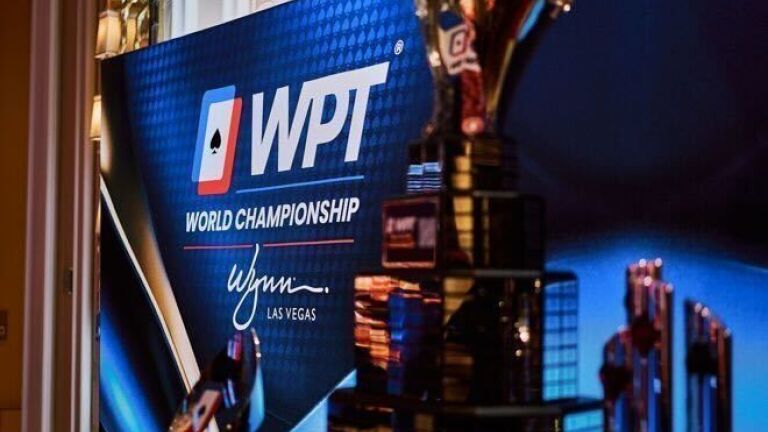Online poker exploded in popularity in Hungary in the late 2000s, mirroring the global boom but with some unique local twists. One of the most surprising drivers was mainstream television.
A hugely popular late-night poker show featured local celebrity Gyorgy Korda —a singer and TV personality—who provided colorful, often unintentionally comic commentary on televised cash games. For a generation of Hungarian viewers, Korda became the voice of poker itself, sparking a nationwide fascination with the game.
Despite Hungary’s relatively small population (under 10 million), it produced a large, highly engaged online poker community. Hungarian players were known for being aggressive, innovative, and willing to study the game seriously. This led to an impressive number of international successes relative to the country’s size.
Some of the standout players who rose during this period include:
- Laszlo "omaha4rollz" Bujtas (omaha and high-stakes cash specialist, international tournament success)
- Andras "probirs" Nemeth (one of the top online MTT players in the world for years)
- Peter "Belabacsi" Traply (the first Hungarian WSOP bracelet winner and a legendary online MTT grinder)
Poker forums, study groups, and coaching sites flourished in Hungary in these years. By the early 2010s, the country had earned a reputation for producing tough, well-prepared online professionals who could compete with anyone on the international stage.
Early Days: A Grey, Unregulated Market
In the years following Hungary’s poker boom, the online market remained effectively unregulated. There was no local licensing requirement or enforcement mechanism specific to poker sites.
International operators—big European brands and smaller rooms alike—offered their services freely to Hungarian players. Sites accepted Hungarian deposits without local restrictions, and players could choose from a vast range of options.
During this period, the government took a largely hands-off approach. There were no local licensing fees, no mandatory taxes at source, and no significant restrictions on advertising. For players, this was a golden age of choice and competition: they could play on the world's biggest poker platforms with full liquidity, generous promotions, and professional-level tournaments.
But this regulatory vacuum also meant no state revenue from online poker, no consumer protection mechanisms enforced locally, and growing political awareness that large sums of money were flowing offshore untaxed. By the early 2010s, as online gambling revenues in general rose, policymakers began to take notice and plan tighter controls.
Political Recognition of Online Gambling Revenues
As online gambling became a lucrative industry across Europe, the Hungarian government recognized the potential for significant tax revenue and political control. This shift was especially pronounced after the Fidesz party, led by Viktor Orbán, returned to power in 2010 with a strong parliamentary majority.
The government's strategy was clear: move away from a laissez-faire, unregulated market toward a highly centralized, state-controlled system. Legislation was introduced to create a monopoly-friendly environment, granting tightly controlled concessions to operate gambling services within Hungary.
While the main focus was on online sports betting and casino games—where the money was biggest—poker was explicitly included in the legal definition of gambling. Even though poker is arguably a skill-based game with its own ecosystem, it fell under the same restrictive umbrella.
Compounding the issue for poker sites was that many leading operators also offered sports betting and casino products on the same platforms. This made them direct targets for regulation. The result was a licensing model that effectively reserved the market for politically connected domestic operators. Concessions were granted to a handful of well-connected business figures with close ties to the government, including names like Istvan Garancsi, Arpad Habony, and Gabor Szima.
For international poker brands, this signaled the beginning of a long and contentious battle to maintain access to Hungarian players under the new regime.
The Unibet vs. Hungary Case and Its Aftermath
As the Hungarian government rolled out its restrictive licensing regime, major international operators found themselves effectively locked out of the market. The rules offered no transparent or fair path to a license, and the criteria were widely seen as tailored to ensure only government-approved concession-holders could qualify.
One of the highest-profile challenges came from Unibet (Kindred Group), which took legal action arguing that Hungary’s system violated EU law—specifically the EU’s principles of freedom to provide services across member states.
In 2017, the Court of Justice of the European Union (CJEU) ruled in Unibet’s favor. The Court found that Hungary’s licensing system was incompatible with EU law because it failed to meet fundamental requirements of transparency, proportionality, and non-discrimination. The judgment made clear that granting exclusive rights without an open, competitive process could not be justified simply by invoking consumer protection or crime prevention goals.
However, the ruling did not automatically open the market or invalidate Hungary’s regulatory approach entirely. Instead, it forced Hungary to modify its legislation to comply, at least on paper, with EU principles.
In practice, this meant rewriting the law to appear more open while still maintaining tight government control. Although the legal framework was adjusted, many of the underlying barriers remained in place. The state retained discretion over licenses, and no meaningful opportunity was offered to major European brands to re-enter the market.
The Unibet case was a landmark moment, proving Hungary’s original model was illegal under EU law—but it also illustrated the limits of EU enforcement. The Hungarian government adapted just enough to claim compliance while preserving its monopoly-friendly system in practice.
"Liberalisation" in Name Only
Following the Unibet ruling, Hungary revised its gambling legislation to nominally address the Court’s objections. Officially, the updated framework was presented as a more open, EU-compliant licensing system. In reality, however, it functioned as “liberalisation” in name only.
The new rules introduced formal procedures for licensing, but the criteria were set at thresholds so high they were essentially unattainable for most operators. Requirements included extremely large financial guarantees, stringent local establishment obligations, and other conditions disproportionate to the actual size of the Hungarian poker market.
This created a situation where no major EU-licensed brands could realistically qualify, while the state could point to the existence of a theoretical pathway to a license.
At the same time, Hungary escalated enforcement against international operators. The authorities began actively blocking access to sites like Bet365, Unibet, and PokerStars, portraying them in public statements as dangerous, untrustworthy platforms that put Hungarian players’ funds at risk.
These measures served two strategic goals:
- Eliminate competition for state-aligned concession holders in sports betting and casino.
- Undermine the credibility of well-established international poker brands, discouraging players from seeking alternatives.
While the stated rationale was consumer protection, critics argued that the main objective was to keep the market—and its revenues—under political control.
Market Withdrawals and Remaining Operators
As the restrictive licensing system solidified and enforcement ramped up, many of the world’s largest and most reputable online poker brands chose to withdraw from the Hungarian market entirely.
For these companies, the cost of compliance with Hungary’s licensing demands was simply unjustifiable given the country’s relatively small player base. The risk of fines, reputational damage from being branded “illegal,” and repeated ISP-level blocking made the market unappealing.
Some international operators continued to serve Hungarian players quietly, using mirror sites, alternative payment channels, or VPNs. But these workarounds posed challenges: players risked having their accounts blocked or funds frozen, while companies faced escalating legal threats and payment-blocking measures.
The Hungarian banking sector also began cooperating more actively with enforcement efforts. Major banks restricted gambling-related transactions, and payment processors were pressured to block deposits and withdrawals to unlicensed operators.
This created an uneven playing field where only a tiny number of government-approved concession holders—often with strong ties to the political elite—were able to operate openly and advertise domestically.
For Hungarian players, the result was sharply reduced choice. They lost easy access to the global liquidity, tournament schedules, and promotions offered by the biggest international brands. While some persisted in finding ways to play offshore, the overall market shrank and became riskier for average users.
Crypto Crackdowns and the Latest Regulatory Moves
As traditional payment channels were increasingly restricted, many Hungarian poker players turned to cryptocurrencies to move funds in and out of offshore sites. Crypto offered a convenient workaround for blocked card payments and bank transfers, letting players continue to access international brands despite regulatory obstacles.
This strategy became especially popular in recent years as major crypto exchanges and wallet services made buying, holding, and transferring digital assets more user-friendly. For many Hungarian players, crypto was not about speculation—it was a practical tool to maintain access to their poker accounts.
The Hungarian government, however, has moved to close this loophole as well. A series of legislative updates in 2023 and 2024 introduced stricter anti-money laundering controls for crypto transactions. Local and EU pressure also pushed global financial platforms to tighten compliance.
One highly visible result was Revolut freezing Hungarian customers’ crypto accounts in 2024. This left many users suddenly unable to access their funds at all—unable to cash out, convert, or transfer their balances.
For poker players, it marked another step in the ongoing squeeze: even the “shadow channels” that had let them bypass banking bans were being systematically shut down. The overall effect was to make it riskier, costlier, and less predictable for Hungarians to play on the world’s biggest and most trusted online poker platforms.
While these measures were officially justified as anti-fraud and anti-money laundering initiatives, many saw them as part of the broader strategy to reinforce domestic control and protect the state-favored operators from any meaningful competition.
Future Prospects: Liberalisation or Entrenchment?
Looking ahead, few industry observers expect Hungary to meaningfully liberalise its online poker market in the near term. While the government has made nominal legal adjustments to claim EU compatibility, the practical barriers to licensing remain firmly in place.
The current system delivers several advantages for the state and its politically connected concession-holders:
- Consolidated control over gambling revenues.
- Limited competition that protects domestic operators’ margins.
- The ability to present restrictive policies as consumer protection.
Any serious liberalisation would require not only rewriting licensing rules to be genuinely open and transparent, but also accepting competition from global brands with far larger marketing budgets and player liquidity. Politically, this is an unappealing trade-off for a government that has prioritised loyalty and control over market openness.
There is also little sign of sustained EU-level pressure that could force deeper reform. While the European Commission can launch infringement proceedings and the Court of Justice can issue rulings, these processes are slow, incremental, and depend on member states’ willingness to comply in good faith.
As a result, Hungary’s online poker market seems likely to remain a tightly controlled, semi-closed system. Players who want access to global brands will continue to face legal uncertainty, payment barriers, and the risk of abrupt enforcement changes. For the international poker industry, Hungary represents both a cautionary tale about regulatory capture and a reminder of the limits of EU harmonisation when national political interests are determined to resist it.





























0 comments